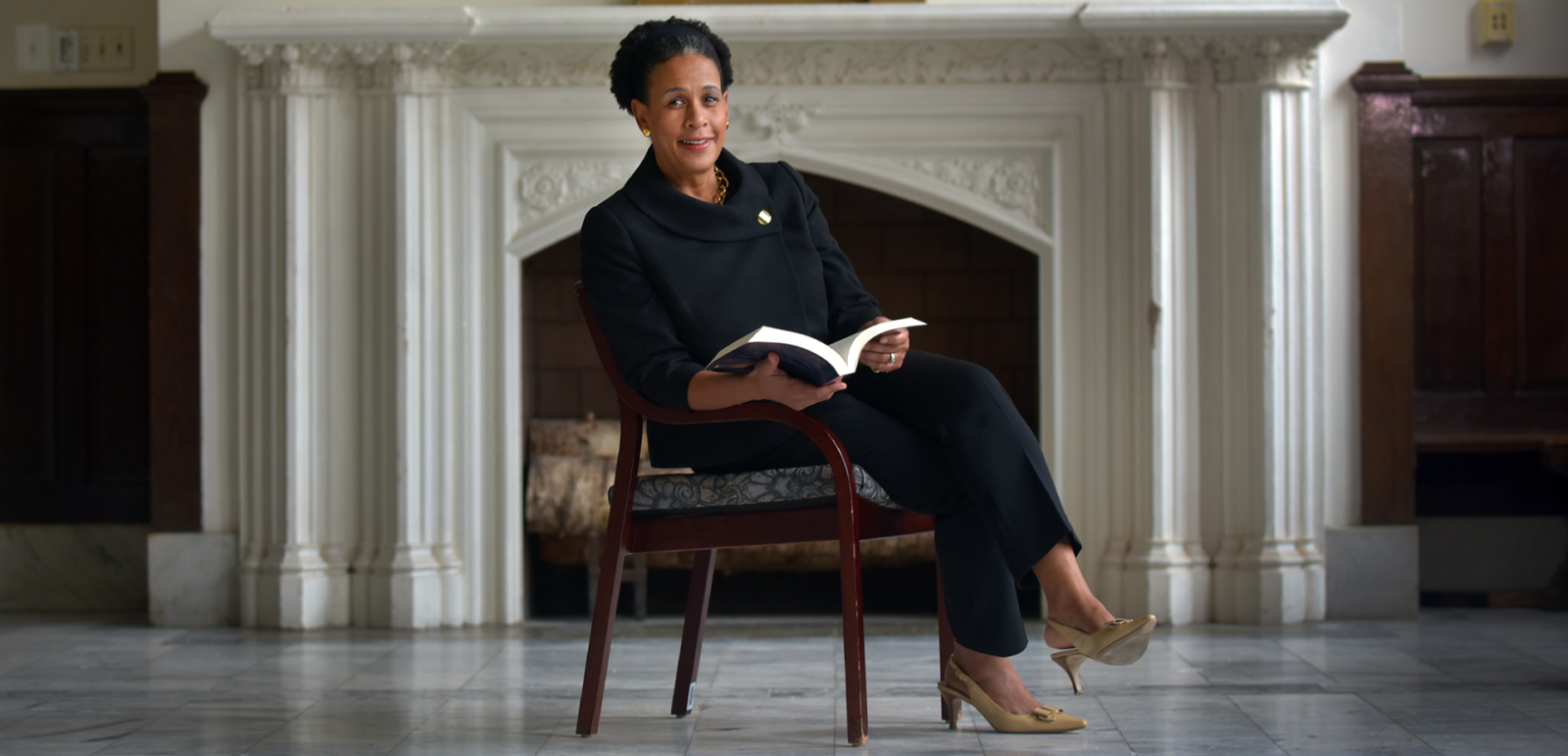Meet Associate Dean Carmia N. Caesar
About Associate Dean Caesar
Associate Dean Carmia N. Caesar Advances GW Law’s Commitment to Anti-Racism
Carmia N. Caesar joined GW Law in 2021 as the inaugural Associate Dean for Justice, Equity, Diversity, and Inclusion. In this interview, she discusses what attracted her to GW Law and why she’s excited to collaborate with the law school’s faculty.
Associate Dean Caesar brings extensive experience in programming, counseling, and experiential learning to GW Law, having served as the Director of Externships and Experiential Learning and an adjunct professor at Georgetown University Law Center and Howard University School of Law, respectively. She was on the Diversity Committees at both law schools, working to expand the Diversity, Equity & Inclusion (DEI) infrastructure and programming that met the unique needs of both communities.
In practice, Associate Dean Caesar represented clients at the intersection of education and the juvenile criminal system, as well as in domestic violence and housing matters. She is a graduate of Pomona College and Harvard Law School and was a Leadership Fellow with the Northern California Center of the Coro Foundation.
Q: What is the GW Law anti-racism resolution, and why was this role created as a result of that resolution?
On Juneteenth 2020, the GW Law faculty unanimously adopted an anti-racism resolution. In response to that resolution, Dean Matthew created a new deanship, announced in January 2021, which is the Associate Dean of Justice, Equity, Diversity, and Inclusion.
Q: What drew you to GW Law?
I was drawn to the resolution; I was drawn to the opportunity to work with Dean Dayna Bowen Matthew; and I was drawn to the opportunity to work for the Dean with the support of a faculty that had voted unanimously on the need, the desire, to work in this space. I was drawn to what GW Law was presenting to the world. That this matters to us, as a faculty. In this dynamic that exists in all law schools—of intellectual freedom and faculty governance—this choice to take on hard work is highly appealing. Doing this work, now, also coincides with the strategic planning process for the law school. So, I am coming in at a time of tremendous opportunity and capacity for change and growth.
Q: What excites you about your role as the Associate Dean for Justice, Equity, Diversity, and Inclusion?
I am excited that many of the issues that matter to me are part of my job title. Years ago, I was at an institution in a capacity that had nothing to do with Justice, Equity, Diversity, or Inclusion, but members of that community sought me out. Those people had different roles, came from varied backgrounds, but they were all seeking something.
Too often issues of inclusion are tacked onto the portfolio of the individuals who are themselves struggling to move from margin to center. This position is housed within the Deans’ Suite. The office could not be any closer to the pulse of the Law School.
In addition to the unbelievable payoff of working with law students, this position was designed with collaboration as part of its structure. I get to work with smart, dynamic, really talented people. For me, what I’m excited about, and when I sit in our weekly leadership meetings, is the opportunity to collaborate with my colleagues.
Q: What are trends that you have seen affect law schools in the diversity, equity and inclusion space recently?
I think the trend is to expand the target audience of our efforts. Instead of looking at the historically underrepresented students, for example, we have to look at our entire communities. When I was in school, there was an Office of Black Student Affairs that was seemingly there to help black students, but not the larger community. I think that if a group is marginalized, it is not the group that needs fixing, it is the center that needs adjusting. When the canary dies, it is an indication that there is something wrong with the air in the mine, not with the canary. To continue the analogy, DEI spaces are paying attention, not only to the suffering canary, but also working to improve the quality of the air.
Q: When you’re not at the law school, what is something you love doing?
I like to spend time in my back yard. My mother took meticulous care of the yard, and her mother, who grew up on the farm, spent hours planting vegetables whenever she came to town. I try to do the space justice. Some years my work pays off.
Q: What are you reading that you are loving right now?
I’m doing a lot of re-reading right now. I picked up Begin Again by Eddie S. Glaude Jr., and then because of that, I found myself picking up James Baldwin’s The Fire Next Time. I am also listening to and reading again Whistling Vivaldi by Claude Steele, which connects to Jennifer Eberhardt’s Biased. It’s slow going because I write notes as I read. On my reading pile, I have Isabel Wilkerson’s The Warmth of Other Suns and Caste; Oshinky’s Worse than Slavery. Of course, Dean Bowen Matthew’s Just Health is on the top of the pile.


